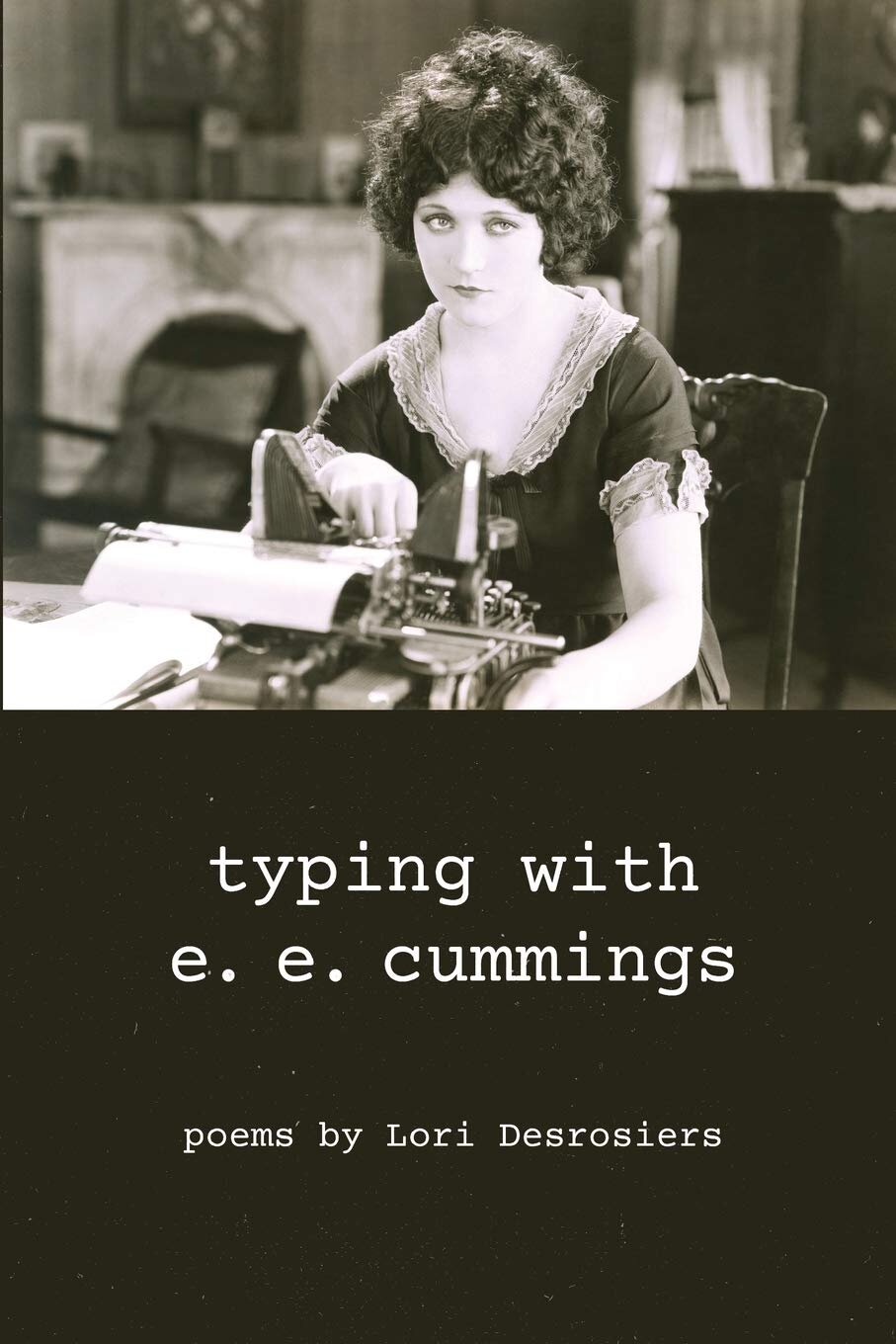Review: typing with e.e. cummings, Lori Desrosiers
By Lennart Lundh
Lori Desrosiers' typing with e.e. cummings is, at twenty pages, a slim book, but certainly not in any other way a small one. The fifteen poems are firmly rooted in themes of love kept and lost, personal events made necessarily universal, while framed as a pastiche and tribute to cummings. One can easily imagine cummings speaking from the page, occasionally making it hard to sort gender-specific language. Some pieces are harder than others to read aloud without a studied understanding of cummings' approach to spacing and line breaks (though cummings' recorded readings are sadly less than inspiring. Neither of these is a serious shortcoming; Desrosiers is in top form and clearly in command.
The opening "my sweet old typist" (page 1) is, probably for most of us, what we think of when we think of cummings -- little capitalization or punctuation, parenthetical alternatives, words and lines played with and broken:
my sweet old mother
blanche
during wwii
joined the
signal
c
o
r
ps
///
I dream (typist
of the sound
of you typing)
of your voice
in my life.
Of course, playful tampering with the whiteness of a blank page is not the whole of cummings or Desrosiers. "Poem with first line from e.e. cummings" (page 5), serves us a more traditional
my father moved through dooms of love
through time with his yellow dog Hector
wife too young, children too
sad, collecting dust and fire
that echoes cummings' original "My father moved through dooms of love" on the page without parroting its rhyming and more difficult phrasing
my father moved through dooms of love
through sames of am through haves of give
singing each morning out of each night
my father moved through depths of height
Instead, Desrosiers makes cummings spark her own fires, using his styles as guides to her own poems without sacrificing her own voice and meaning. In "Poem after e.e. cummings" (page 7), she writes
I will wade out
into the water that burned our thighs
I will take your memory in my mouth
giving a very cummings-styled opening to her own poem of personal loss, unlike the celebratory theme of cummings' "I will wade out". Elsewhere, "Poem with a line from e.e. cummings" (page 10), with its five non-rhyming open couplets, owes only its first line to the three rhyming quatrains of "Metamorphosis".
Ultimately, Desrosiers gives the reader two gifts in typing with e.e. cummings. First is an opportunity to visit the works of a master and pay careful attention to their nuances and depths. Second is the chance to simultaneously read a marvelous grouping of her own unique visions and their words. For me, there is no contest. They're complementary, and equally priceless.
*
Lennart Lundh is a poet, short-fictionist, historian, and photographer. His work has appeared internationally since 1965.

